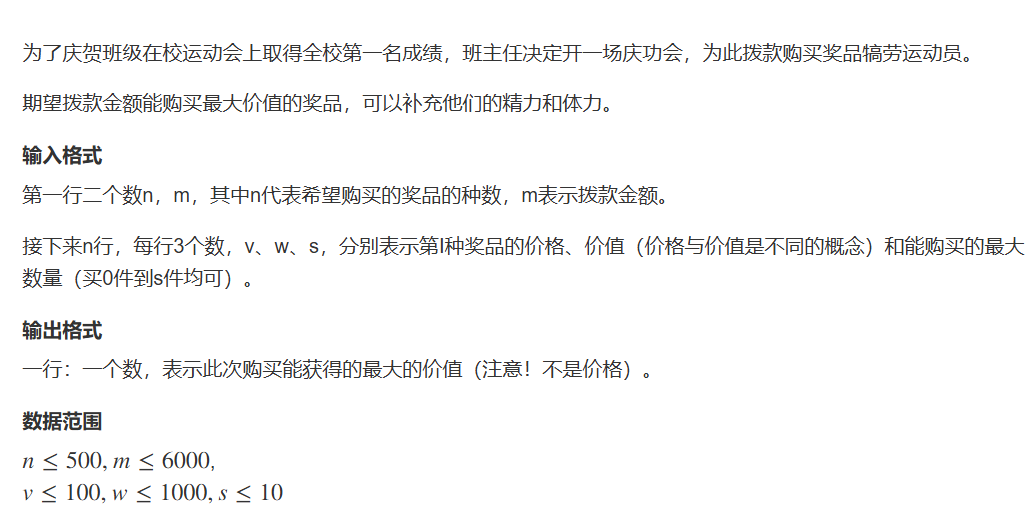
多重背包问题
import java.util.*;
public class Main {
static final int N = 510, M = 6010;
static int[][] f = new int[N][M];
static int[] v = new int[N], w = new int[N], s = new int[N];
static int n, m;
public static void main(String[] args) {
Scanner sc = new Scanner(System.in);
String[] str = sc.nextLine().split(" ");
n = Integer.parseInt(str[0]);
m = Integer.parseInt(str[1]);
for (int i = 1; i <= n; i++) {
str = sc.nextLine().split(" ");
v[i] = Integer.parseInt(str[0]);
w[i] = Integer.parseInt(str[1]);
s[i] = Integer.parseInt(str[2]);
}
for (int i = 1; i <= n; i++)
for (int j = 1; j <= m; j++)
for (int k = 0; k <= s[i] && k * v[i] <= j; k++)
f[i][j] = Math.max(f[i][j], f[i - 1][j - k * v[i]] + k * w[i]);
System.out.println(f[n][m]);
}
}
优化一维
发现在更新f[i][j]时也是只使用上一层的数据
f[i][j] = Math.max(f[i][j], f[i - 1][j - k * v[i]] + k * w[i]);
因此可以采用01背包的优化方式
import java.util.*;
public class Main {
static final int N = 6010;
static int[] f = new int[N];
static int n, m;
public static void main(String[] args) {
Scanner sc = new Scanner(System.in);
String[] str = sc.nextLine().split(" ");
n = Integer.parseInt(str[0]);
m = Integer.parseInt(str[1]);
for (int i = 1; i <= n; i++) {
str = sc.nextLine().split(" ");
int v = Integer.parseInt(str[0]), w = Integer.parseInt(str[1]), s = Integer.parseInt(str[2]);
for (int j = m; j >= v; j--)
for (int k = 0; k <= s && k * v <= j; k++)
f[j] = Math.max(f[j], f[j - v * k] + k * w);
}
System.out.println(f[m]);
}
}

